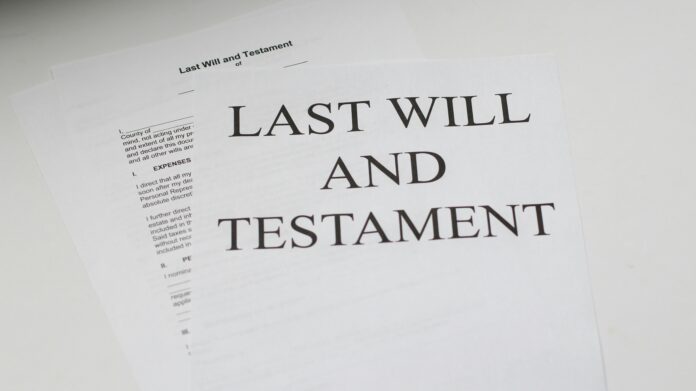
Q. My husband passed away suddenly six months ago. We have one son who is 35. He is doing quite well and lives with his fiancé in his own house. Regrettably my son and I had a falling out some years ago and only speak on a “needs must” basis. My husband did not make a will and the only asset in his estate is our family home, which is regrettably in my husband’s name only. My son has approached me and says I will have to sell the family home to pay him off. He says that he is entitled to one third of my husband’s estate. Is this correct? I do not have any savings and will not qualify for a loan. Where do I go from here?
Dear Reader,
Where a person dies without having made a will, the rules as set out in the Succession Act 1963 prevail. Because your husband did not make a will, the intestacy rules state that your entitlement is to two thirds of your husband’s estate, with the remaining third going to your son.
I note that the deeds to the family home are in your husband’s sole name and therefore your son can argue that he is entitled to a one-third share in the family home, together with a one third share to whatever cash, shares, and other assets your husband may have owned.
The law does permit you to claim 100 per cent ownership of the family home, but this will require you to make a cash payment to your son and in effect “buy out” his share in the property.
In certain circumstances, as appears to be the position in your case, where one does not have sufficient cash to buy out a child’s share, one is entitled to make an application to the court to secure full ownership of the family home without making a cash payment – if you can satisfy the court that to make a payment would result in hardship to you. Such court applications can be costly and the outcome can never be guaranteed.
It is open to your son to waive or give up his entitlement to his third of your husband’s estate, but this seems unlikely given that the relationship with your son is not close and the fact that he has asked you for his entitlement in the first place. So it looks like you are in a position to apply to the court for full ownership of the property (which you may get).
If your court application is unsuccessful and if no alternative arrangement can be agreed with your son, you may have to sell the property to pay him his one third share. This is a most unfortunate situation and certainly highlights the serious difficulties that do arise when people do not make a will.


